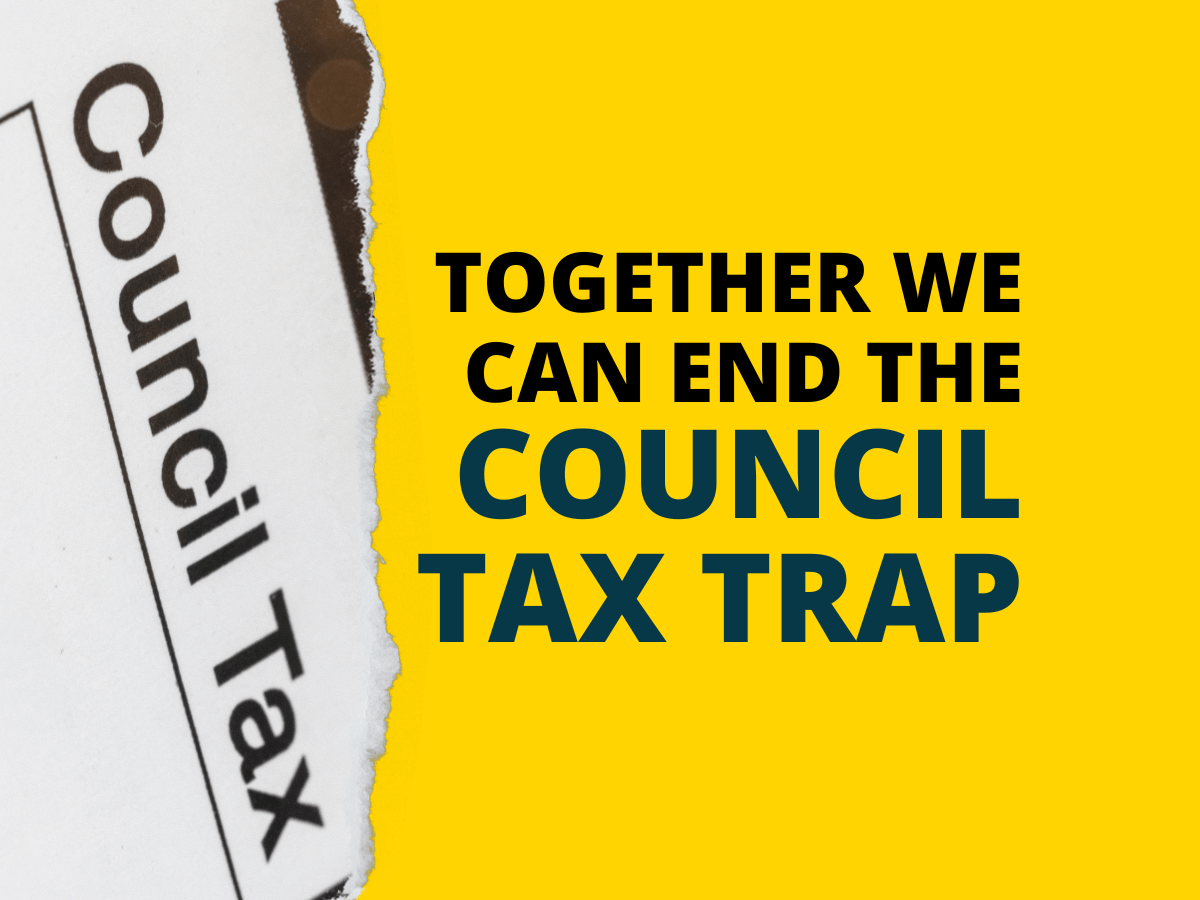
Clare Laxton, Interim External Affairs Manager, Money and Mental Health
Help us end the Council Tax Trap for people with mental health problems
17 September 2024
- Our most recent research shows that as many as two million people with mental health problems have fallen into a ‘Council Tax Trap’.
- By that, we mean missing one payment that triggers increasingly aggressive demands from councils to repay rapidly escalating amounts of money.
- Last week, we launched our new campaign in Westminster alongside our Chair and Founder Martin Lewis.
- Support the campaign by signing the petition here.
This week we launched our new research into public sector debt collection and our new campaign calling for an end to the Council Tax Trap. You might have seen it on social media or in the news like on ITV.
Our research found that there are up to two million people with mental health problems in the UK who have fallen into a ‘Council tax trap’ – missing one payment that triggers increasingly aggressive demands from councils to repay rapidly escalating amounts of money.
Within six weeks of a single missed payment, councils are demanding up to 12 times the original debt, sending court summons, piling on unfair charges, and calling in the bailiffs — this has to stop.
And we need your help. Please sign our petition calling on the government to put an end to the Council Tax Trap.
Why this matters to people with mental health problems in particular
People living with mental health problems are particularly at risk of the Council Tax Trap as they are more than twice as likely to have missed a council tax payment, and are also disproportionately subjected to bailiff action and other aggressive practices. And living with a mental health problem means that we can often find it to do tasks such as reading letters and taking action when faced with debt – this makes the particularly rapid process of debt collection so harmful for many people with mental health problems.
People like Sharon from our Research Community, who lives with bipolar disorder, and who received a letter on Christmas Eve – which had arrived late due to postal delays – saying that she needed to pay her council tax bill by Christmas Day.
This was despite reaching out to her council before missing the payment to explain that she would struggle to afford that month’s payment and to try and set up a payment plan. Her request was refused by the council because she was not yet in arrears.
Sharon, who is a member of our Research Community, talks about the impact of the aggressive and rapid council tax debt collection processes on her mental health:
“It’s an appalling system, I can’t manage it. As soon as I start hearing threats, I become incapable. But even when I’m well enough to contact them and ask for a payment plan to help me keep on top of my finances, they bin me off.”
Help us end the Council Tax Trap
We are calling on the government to end the Council Tax Trap by changing national regulations so that people are given more time before they are hit with bigger bills, court summons and bailiff action. We also want to see a cap on the additional charges people also face for being issued with legal documents by local authorities.
Help us by signing our petition calling on the government to end the Council Tax Trap.
